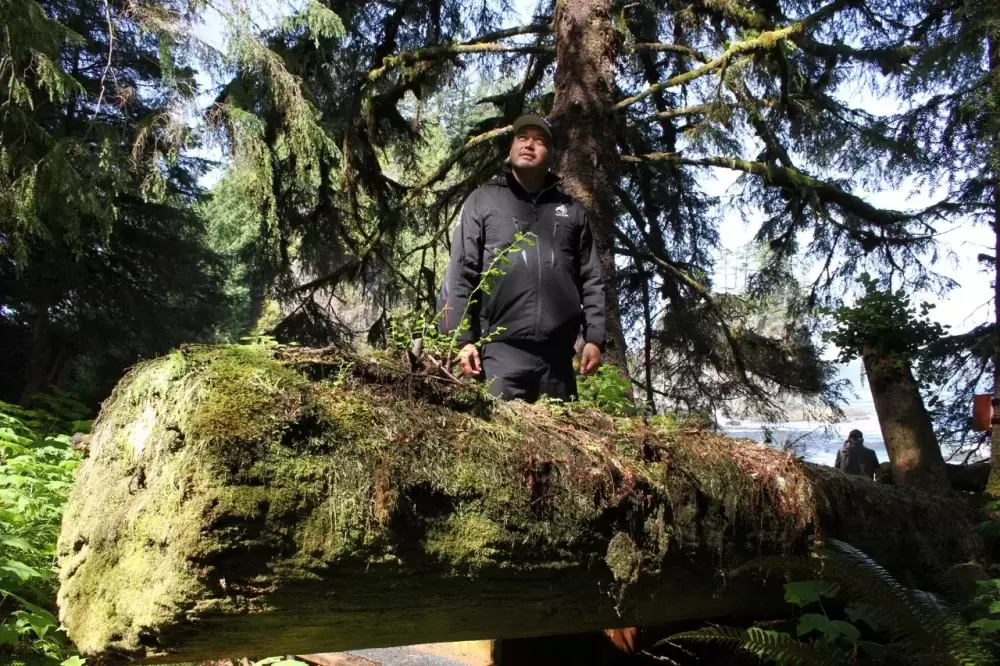For over half a century, clear-cut logging swept through Huu-ay-aht’s traditional territories, described Bob Bocking, LGL Limited senior fisheries biologist.
“There was no regard for protecting riparian areas, which are the forested areas adjacent to the streams and the waterways that support salmon and other species,” he said.
In a move to repair some of the fish and wildlife habitat that were damaged by the logging industry, Huu-ay-aht launched the Watershed Renewal Program in 2017. It focuses on restoring the Sarita, Pachena, and Sugsaw watersheds.
“Especially the Sarita River,” said Bocking, which is known as The Heart of the People.
In support of the program, it was recently announced that Western Forest Products will provide $375,000 in equal instalments of $125,000 over three years to the nation.
“It’s really great to see another organization stepping up to contribute to this work,” said Christine Gruman, lands and resources specialist for the Huu-ay-aht First Nations. “Huu-ay-aht has taken it on as a program and has taken on the responsibility for cleaning up what is essentially someone else’s mess. Hopefully one of the things that can come out of this is to inspire private companies and industry to contribute to projects in our area or in the areas that they operate in.”
There are over 20 separate projects and 14 technical reports that comprise Huu-ay-aht’s Watershed Renewal Program, according to the release. It is still undetermined how the contribution from Western will be incorporated into these projects due to how recent the funding announcement was made.
Western Forest Products is the latest in a succession of companies who have held forest management licences over the land that includes the Huu-ay-aht’s territory. Western took over the licence in 2006, but for much of the area’s history it was held by MacMillan Bloedel, who held forest management jurisdiction in the area south of Port Alberni from 1955-1999.
“There are decades and decades of damage that’s been done to the watershed and most of that happened while Huu-ay-aht was not in direct control of those lands,” said Gruman. “Now that these lands are back in their direct control through the treaty, the nation has the ability to start healing the landscape and bringing back proper functioning to that area.”
Along with providing salmon enhancement, habitat restoration as well as fisheries and wildlife research, the Watershed Renewal Program aims to set the stage for future forestry practices, said Bocking.
In March, the nation announced the majority ownership interest of Tree Farm Licence 44, which is part of a $36.2-million transaction with Western. It also includes a partial stake in the Alberni Pacific Division – Western’s only remaining sawmill in Port Alberni.
While there’s only so much the nation can do with the resources at their disposal, this partnership is a move towards “everybody canoeing together in the same direction,” said Bocking.
“An integrated watershed management system in the future is part of the ultimate goal,” he said.







